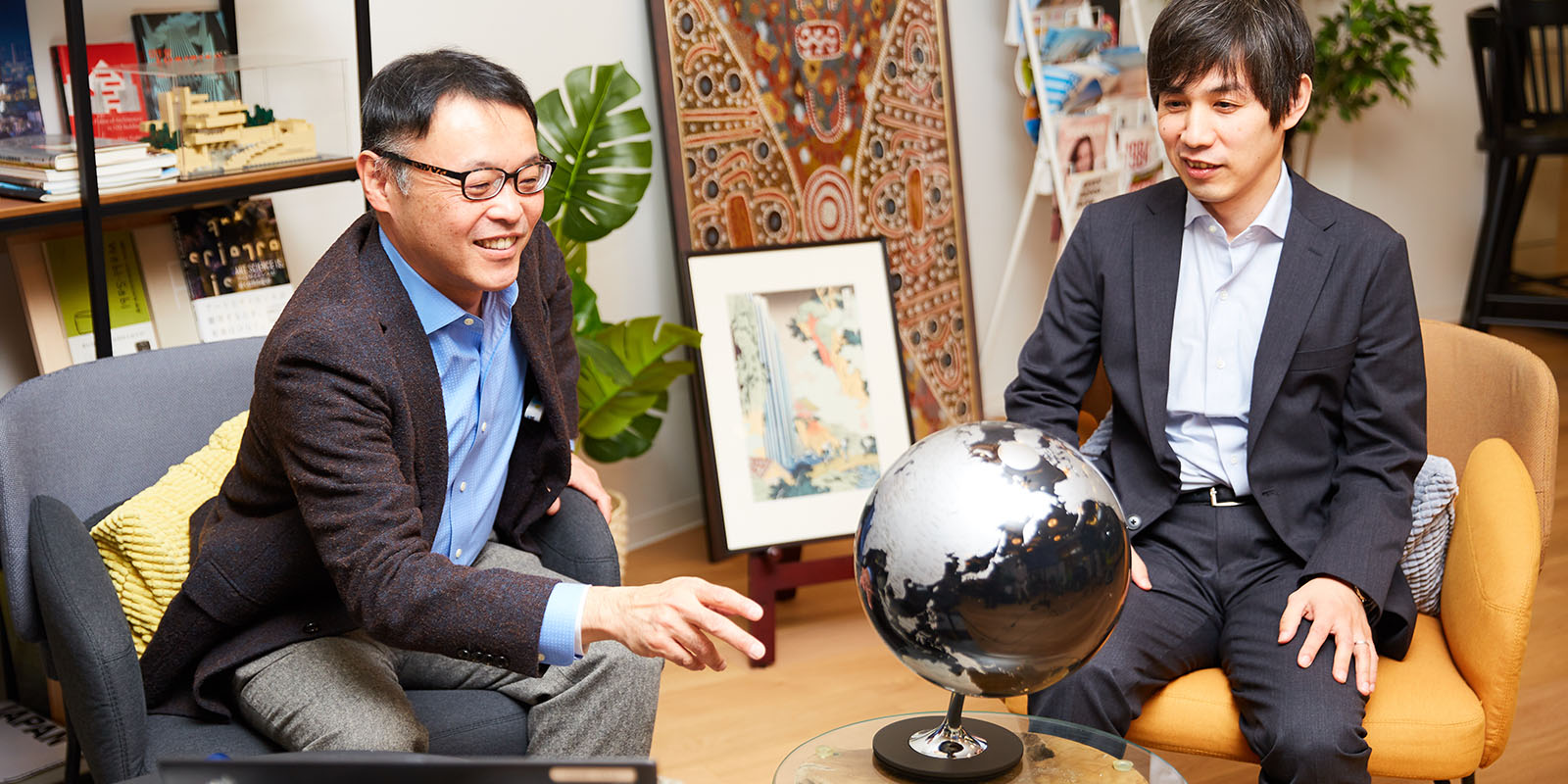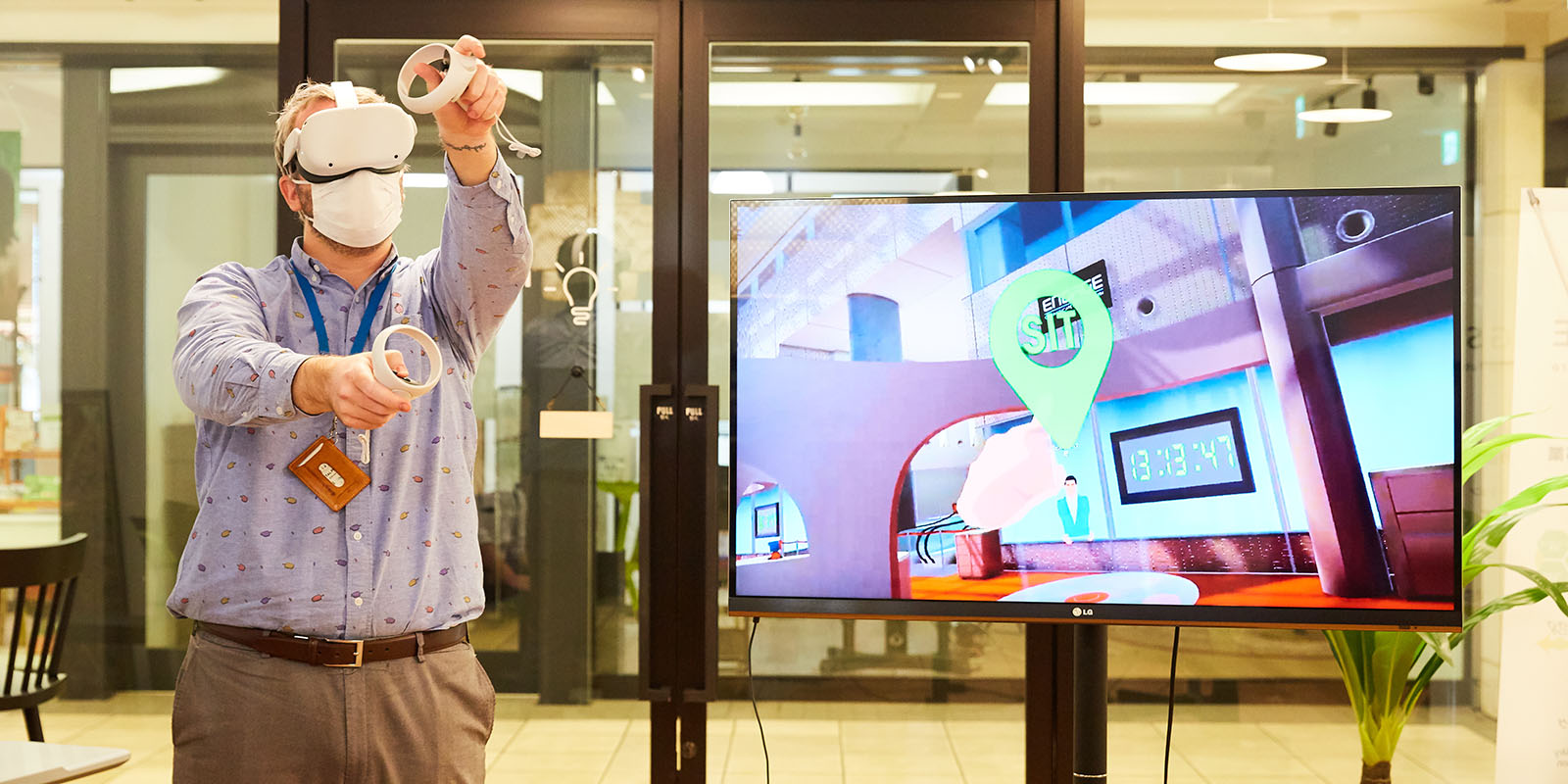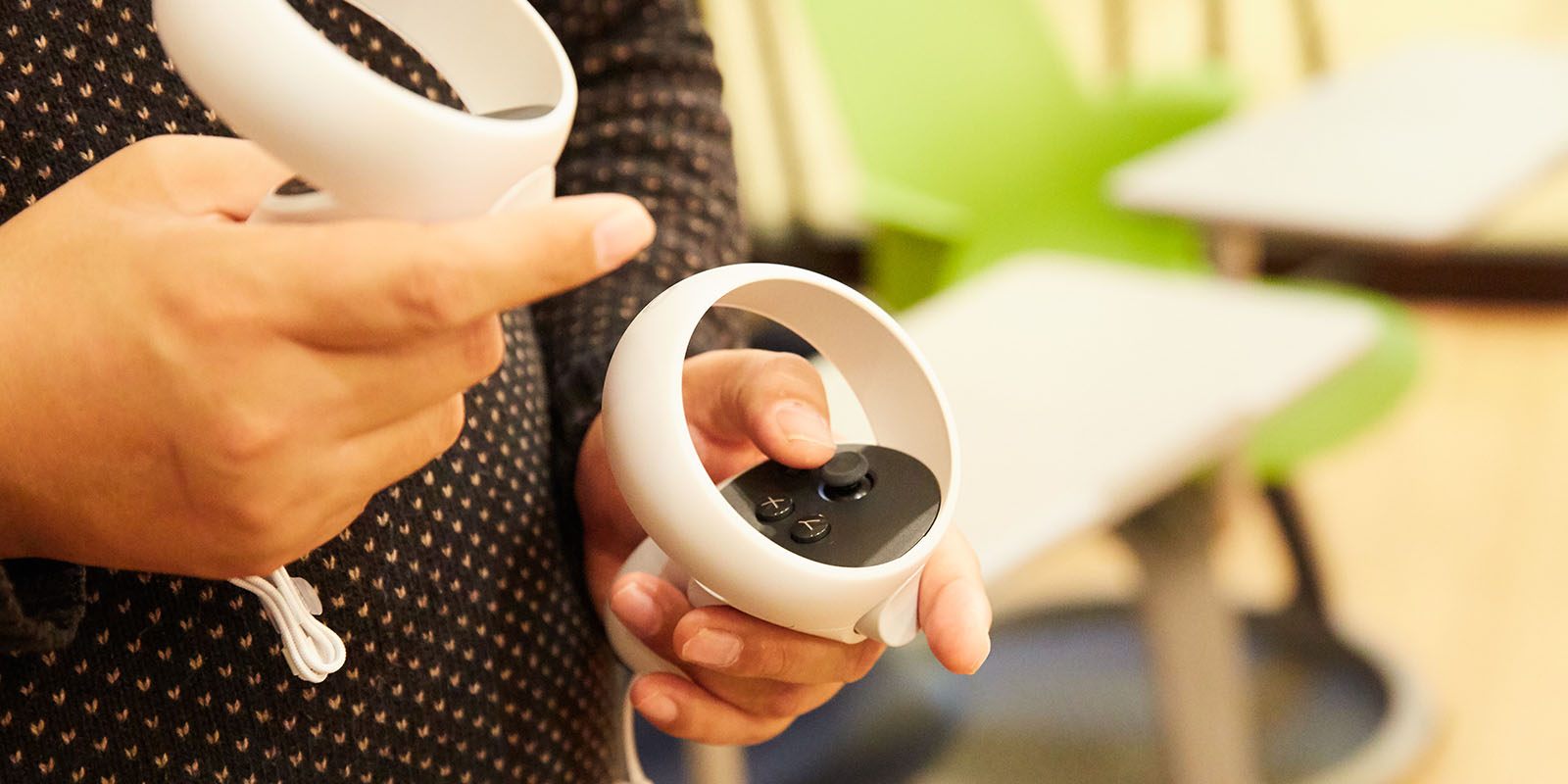A different class
Kentaro Sugawa and Yoshihisa Tomonaga, directors of Global Sky Education, How virtual reality could help reshape Japan’s education system
Like most other countries in the world, Japan’s education system has been significantly impacted by the Covid-19 pandemic, with classrooms closed and teaching carried out in the digital world. This has led to the emergence of virtual reality (VR) learning services, including those provided by Global Sky Education. We sat down with Kentaro Sugawa and Yoshihisa Tomonaga, the company’s directors, to find out what opportunities VR technology opens up for education.
 © Kisa Toyoshima
© Kisa Toyoshima
In November 2020, you launched Virtual Global Gateway, an experience-based VR service for learning English. How was this service developed?
Sugawa: When the pandemic forced education online Tokyo Global Gateway (TGG) – a Odaiba-based startup that works with the Tokyo metropolitan government to provide English programs – came to us asking about a virtual reality-based language learning service. They said ‘We really need this now!’, so we developed Virtual Global Gateway (VGG) for them. It’s fantastic to see the impact it has had.”
Virtual Global Gateway lets learners experience a wide range of scenes – from airport immigration to a restaurant and a European city street – in virtual reality. Why develop such a sophisticated program?
Sugawa: Online learning has become the new normal during the pandemic, but seeing your teacher and classmates’ faces in rows on Zoom is different from real life; you could try role-playing an airport immigration scene all you want, but it wouldn’t feel real. With VR, on the other hand, you get the feeling of being there.
Online learning has become the new normal during the pandemic, but seeing your teacher and classmates’ faces in rows on Zoom is different from real life
You organized a VR prototype class at Kanazawa University. How did the students respond?
Tomonaga: The students participated much more actively than we had expected. I think this is because they use avatars, characters representing themselves, to enter the VR world. Many Japanese people are not used to speaking English and are worried about embarrassing themselves by making mistakes. The use of avatars lowers those psychological hurdles. VR learning has the potential to encourage students to speak – which, after all, is the only way to improve your English. It’s really important to make learning fun.
 © Global Sky Education
© Global Sky Education
Do you think VR lessons could be of use outside of language learning too?
Tomonaga: Of course. In February 2021, we taught a VR class to students with developmental disorders at the Tokyo Gakugei University special-needs school. A large part of teaching children with developmental disorders is having them experience everyday situations outside of the classroom, but that has become difficult to do during the pandemic. With VR, we could give a virtual class in things like buying everyday items. Our scenario recreated the experience of paying at a register so the students could get used to that situation. Practicing with VR helped them gain the confidence they needed.
I think we’ll see a hybrid of real-life and virtual reality education, since there are some things you just can’t achieve with digital technology, no matter how advanced
 © Global Sky Education
© Global Sky Education
With all the advances we’re seeing with VR, will real-world education still retain its importance?
Sugawa: I think we’ll see a hybrid of real-life and virtual reality education, since there are some things you just can’t achieve with digital technology, no matter how advanced.
Tomonaga: With VR, you get to choose from so many different worlds. You get to pick the scenarios you’re excited about and what you learn will hopefully be of use in the real world. It’s important to remember that VR education is merely a bridge to something else. After our VR class at Kanazawa University, many students said the experience had made them excited about actually traveling overseas. The great thing about VR learning is that it can help you realize how important experiences that engage the senses and further communication really are. It shouldn’t – and won’t – replace real-world experiences.
The great thing about VR learning is that it can help you realize how important experiences that engage the senses and further communication really are